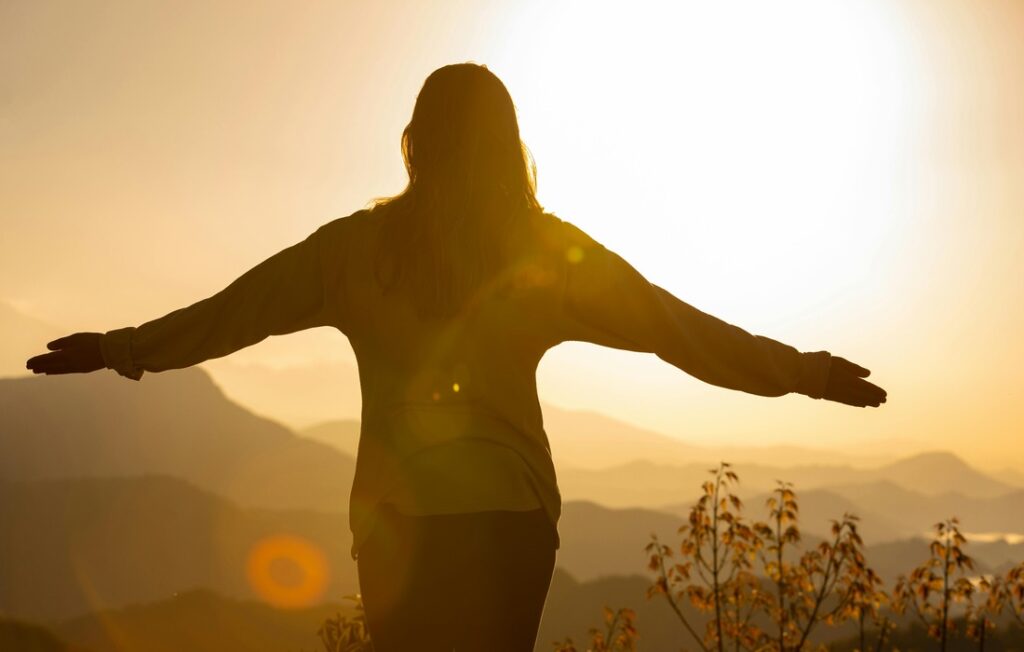
Understanding Why You Feel Like You’re Falling During Spiritual Ascension
Have you ever felt a strange, sinking sensation just as you began to feel like you were rising—physically, emotionally, or even spiritually? That unsettling feeling of falling while you’re ascending is more common than you might think, especially during a spiritual awakening. It often reflects the push and pull of transformation: as you step into higher awareness, the weight of old patterns, fears, or resistance to change can create the illusion of falling. You’re not alone, and no, you’re not “doing it wrong.” This is a natural part of the process, and understanding it can help you navigate with more ease and trust in your journey ahead. Let’s explore why this happens and how to embrace it.
Understanding the Phenomenon of Feeling Like Falling
Feeling like you’re falling when you’re actually rising—spiritually or otherwise—is one of those experiences that can leave you confused, even shaken. Why does it happen, and what does it mean? When we’re talking about spiritual ascension, this sensation can actually reveal a lot about how your mind, body, and energy respond to significant changes. Let’s break it down into what’s really happening.
The Concept of Spiritual Ascension

Spiritual ascension, or awakening, is the process of expanding your awareness and shedding layers of fear or ego that no longer serve you. This is more than just a mental shift; it’s a full recalibration of how you view the world and your role within it. Ascension often involves becoming increasingly attuned to the subtleties of life—your intuition sharpens, your perspective broadens, and everything seems to carry a deeper meaning.
But here’s the thing: this kind of growth isn’t always smooth or easy. Gaining higher levels of consciousness can feel liberating and terrifying all at once. Many describe it as stepping into a brighter, greater version of themselves while simultaneously releasing deeply rooted beliefs or energies. And yes, during this expansion, physical sensations like falling can arise as your body tries to make sense of the shift. Learn more about spiritual ascension here.
The Physical Sensation of Falling
Why does your body feel like you’re falling? This sensation isn’t purely “in your head”—it’s often rooted in how your brain and nervous system interpret sudden changes. During spiritual ascension, there’s a dynamic tension between your body’s survival instincts (which crave stability) and your soul’s desire for transformation (which thrives on growth).
When we experience rapid changes—not just physically, but energetically—the brain sometimes interprets those shifts as a sudden loss of control, triggering flight or fight responses. Think about that jerky feeling you get when you fall asleep and suddenly “jolt awake.” It’s similar but occurs during the inner rebalancing that comes with spiritual growth.
It’s not unusual to find that these feelings are accompanied by dizziness, lightheadedness, or even physical disorientation, especially if you’re moving into a new phase of awakening. Check out other physical symptoms of spiritual awakening here.
The Role of Energy Shifts
During ascension, your energy field undergoes dramatic changes. Imagine your energetic “frequency” being tuned to a higher channel—everything shifts, including how your body perceives balance and movement. These adjustments can feel strange, even overwhelming, as the alignment between your physical and energetic selves catches up.
Energy shifts often bring on sensations like falling, tingling, or heaviness. This is because your energy system, including chakras and meridians, is recalibrating. Your energetic body essentially has to “catch up” to those higher frequencies, and while this is happening, it’s completely normal to feel a little off-kilter.
Grounding exercises, like walking barefoot on the earth or simple breathwork, can help stabilize these sensations. For some, it may also help to work with energy healers or explore resources like this guide to navigating energetic shifts.
Does this resonate with you? What if you allowed yourself the space to embrace these moments as part of your growth, rather than fighting them? Just like your body adjusts to new heights when climbing a mountain, you’re adjusting to the heights of a new level of awareness. Give yourself grace—you’re doing more than you realize.
The Emotional and Psychological Impact of Ascension
Spiritual ascension is a powerful and deeply personal journey, often filled with highs and lows that surprise even the most self-aware individuals. One of the most puzzling effects for many involves the emotional and psychological upheavals that accompany awakening. These often uncharted waters bring feelings of disorientation, fear, and vulnerability but also offer profound opportunities for growth if approached with patience and mindfulness.
Disorientation and Vulnerability

During a spiritual shift, it’s perfectly normal to feel ungrounded or even completely adrift. Think of it like walking through a darkened room where the furniture’s suddenly been rearranged; you’re unsure of your footing and need time to adjust. This is because ascension shakes up your usual sense of self and reality. The frameworks you’ve built to understand life—beliefs, routines, and thought patterns—start to crumble as your awareness expands. It’s no small thing to leave behind what feels familiar, even if it no longer serves you.
When this sense of vulnerability hits, it can feel like you’re losing your grip. You might ask yourself, “Why do I feel so lost when I’m supposed to be finding deeper purpose?” This is part of the process. Your mind and heart are recalibrating in real-time, which can create moments of imbalance. Recognizing these feelings as temporary side effects can help ease some of the overwhelm.
- Practical Tip: Grounding exercises like walking barefoot on the grass or focusing on slow, intentional breathing can help restore balance during these phases of disorientation. Here’s a helpful guide on spiritual awakening and mental health.
Ego Dissolution and Fear
As you ascend, a critical piece of your identity—your ego—begins to loosen its grip. The ego, which often acts as your internal protector and mask, resists change fiercely. It’s like peeling away layers of an onion, revealing parts of yourself you may have buried or avoided. While this is integral to awakening, it can feel intensely uncomfortable.
The sensation of “falling” often arises here because losing the ego feels like a free-fall into the unknown. Fear and insecurity sneak in, whispering doubts like, “What if I lose myself completely?” But here’s the truth: the parts of you slipping away are the parts you no longer need. The fear is real, but it’s not permanent. Much like how a caterpillar may feel in the cocoon, transformation can feel tight and scary but leads to incredible freedom.
- Coping Mechanism: Journaling fears and affirming that your true essence is intact can help you stay steady during these moments. To dive deeper, explore the after-effects of spiritual awakening to understand you’re not alone in this phase.
Trusting the Process
Let’s face it—trusting an invisible process is easier said than done. But here’s where the magic happens. When you lean into trust, the feelings of falling or instability begin to soften. It’s like jumping into a body of water; the more you resist, the harder it is to float. But when you trust the water to hold you, it does.
The ascension journey isn’t about “getting it right” or reaching a specific destination. It’s about surrendering to the flow while staying present with yourself, even in moments that feel chaotic. Developing trust is a muscle that grows the more you use it. Learning to trust this process is essential because letting go of control opens doors to emotional stability and greater insight.
- Actionable Step: Create a simple mantra like, “I trust this process,” and repeat it during moments of doubt. For more guidance, check out this approach to trusting the awakening process.
Does some part of this resonate with you? If you’ve been feeling the emotional sting and the weight of falling sensations, know it’s all part of the larger design of awakening. You’re doing the work, even when it feels like you’re standing still. Embrace this as a chance to rebuild, refocus, and reconnect with the truth of who you are becoming.
Physical and Metaphysical Explanations for the Falling Sensation
The feeling of falling while spiritually ascending can be perplexing, even unnerving. Yet it serves as an important signal that your mind, body, and even your energetic systems are responding to profound shifts. This sensation is often described as an overlap between the physical and metaphysical realms—an interplay of brain responses, energy flows, and spiritual phenomena. Let’s unpack this from three main perspectives.
Neurological Responses
Have you ever noticed how your brain sometimes acts like a translator for sensations your body and soul are trying to process? The falling sensation is often an example of your brain making sense of changes during spiritual ascension, albeit imperfectly.
When you’re ascending spiritually, your brain’s sensory processing may start to amplify or shift. This can create what feels like mismatched signals between your physical senses (like your inner ear’s balance system) and more subtle energetic changes. Think of it as your mind recalibrating to a new operating system—it misfires occasionally, and the sensation of “falling” is one result. This is somewhat similar to a hypnic jerk, the sensation of suddenly falling as you drift into sleep. These sudden, jarring feelings often reflect how your nervous system is responding to internal rewiring during spiritual shifts.
For a deeper dive, check out this exploration of hypnic jerks and spiritual meaning.
Energy Vibrations and Chakras

If you’ve explored spiritual practices like meditation or chakra alignment, you know that our energetic systems play a huge role in how we experience life. Many believe that during spiritual ascension, your energetic body goes through major upgrades. This involves your chakras—the spinning energy centers in your body—realigning to resonate with higher frequencies.
When this happens, it’s like a power surge in your energy grid. Sometimes, this recalibration creates the sensation of falling as your system adjusts to new, more refined vibrations. This is particularly significant for the root chakra, which governs feelings of safety and stability. If your root chakra becomes unbalanced during a shift, it can feel like you’re ungrounded—almost as if the floor beneath you is disappearing.
Curious about the connection between energy and sensations like tingling or disorientation? This resource on chakras and spiritual ascension is worth exploring.
Astral Projection and Sleep Paralysis Intersections
For some, the falling sensation can bridge the spiritual practice of astral projection and the biological phenomenon of sleep paralysis. During astral projection, your consciousness is said to leave the physical body and explore other dimensions. However, transitioning between physical and spiritual states can sometimes produce feelings of disconnection—or that free-falling sensation.
Similarly, sleep paralysis often occurs during shifts between wakefulness and sleep, a time when your mind is awake but your body is not. This lack of coordination can also mimic what feels like falling. Both experiences share common ground with spiritual ascension because they involve altered states of consciousness where your energetic and physical boundaries blur.
For anyone who’s felt the sensation of falling or detachment while ascending, this article on out-of-body experience tactics from sleep paralysis may help shed light.
Recognizing where this falling sensation comes from—whether neurological, energetic, or as a byproduct of spiritual phenomena—can help you feel a little more grounded in your journey. Understanding these layers empowers you to approach the experience with curiosity and care.
Coping Mechanisms and Grounding Techniques
Spiritual ascension can feel like a whirlwind—a profound, often beautiful, journey but one that can also leave you feeling unbalanced, emotionally raw, or even disconnected. The “falling” sensation during this process is often a signal for the need to ground yourself—to find stability while navigating higher states of awareness. Whether you’re feeling overwhelmed or just seeking ways to manage these changes with more grace, grounding techniques and coping mechanisms are essential tools. Let’s unpack some effective ways to steady yourself during this transformative time.
Meditation and Mindfulness
Mindfulness and grounding practices are incredible allies during spiritual ascension. Meditation allows you to connect with the present moment, bringing a sense of calm to emotional turbulence or energetic imbalances. When your mind feels scattered or overwhelmed—as though you’re caught in the rapids—mindfulness acts like an anchor. It reminds you to breathe, to notice, and to simply be.
Grounding meditations are particularly helpful if you feel that “falling” sensation. For instance, visualizing your energy as roots extending deep into the Earth can counteract feelings of energetic drift. Many also use sensory-based mindfulness to stabilize themselves—focusing on the texture of a soft blanket, the sound of rustling leaves, or even the taste of a simple meal. Staying present helps reconnect your physical and spiritual selves.
If you’re new to mindfulness or need a refresher, I recommend checking out this guide to mindfulness exercises by the Mayo Clinic. It walks you through simple but effective practices that fit into any routine.
Connecting with Nature
When the world inside feels chaotic, stepping outside can profoundly reset your energy. Nature has a way of grounding us—of reminding us that we are part of a larger, interconnected system. Whether it’s taking a walk among trees, feeling the grass under your bare feet, or simply sitting by a stream, nature gently restores balance.
Even a short time in nature can help you feel calmer and more collected during your journey. Scientific studies back this up, showing that interacting with green spaces reduces anxiety and restores mental clarity. Think of it as a natural recalibration for your soul. The next time you feel untethered, try this: leave your phone behind, sit quietly in a park or garden, and notice the sensations around you. How does the sunlight feel on your skin? What do you hear? This is grounding at its simplest and most profound.
For more insight into how nature supports our well-being, explore this article from the Mental Health Foundation.
Journaling and Self-Reflection
When your mind and emotions feel like they’re on a roller coaster, journaling can help you process and make sense of it all. Writing things down isn’t just an outlet—it’s a way of creating clarity from chaos. When you journal about your ascension experiences, it’s like shining a light into the fog. What’s confusing in your head often becomes manageable once you see it written down.
Try this: set aside 10 minutes at the start or end of your day and simply write. Don’t worry about grammar or structure—just let your thoughts flow. Document what you’re feeling physically, emotionally, and spiritually. Over time, patterns will emerge. Perhaps you’ll notice that certain triggers cause the “falling” sensation, or you’ll discover insights into your growth that weren’t obvious before.
Need some prompts to get started? Check out this guide on journaling for clarity and emotional balance. It’s a fantastic resource for both beginners and seasoned journalers.
Seeking Support and Community

Navigating spiritual ascension alone can feel isolating, especially when your experiences are hard to explain to others. This is where spiritual communities, mentors, and trusted friends come in. Having a support system of people who “get it” can make a world of difference. Sometimes, just hearing someone say, “I’ve felt that too,” is enough to dispel doubt and bring comfort.
Spiritual groups—whether they’re in-person meetups or online communities—offer shared knowledge, encouragement, and practical guidance. Finding a mentor, attending workshops, or even engaging in open-hearted conversations with like-minded individuals can anchor you through the highs and lows of awakening.
If you’re looking for a starting point, this article on the importance of spiritual community beautifully explains how connection nurtures growth. You don’t have to carry this journey alone; there’s immense strength in leaning on others.
Each of these techniques is a reminder that, while ascension can take us to incredible heights, it’s okay—and necessary—to stay grounded along the way. Which of these strategies resonates with you? Try them out, mix and match, and above all, give yourself permission to be supported during this transformative chapter. You’re not just surviving this journey; you’re thriving in it.
The Transformational Power of the Falling Feeling
The sensation of falling when you’re moving upward—whether on a physical, emotional, or spiritual level—can feel unnerving. But what if it were more than just an unsettling sensation? What if that falling feeling was actually a signal of transformation, shedding, and alignment with a higher state of being? Let’s explore its deeper meaning and how it plays a pivotal role in your spiritual journey.
Rebirth and Renewal
The falling feeling often signifies an important part of personal transformation: letting go of outdated beliefs, behaviors, or thought patterns. Just like leaves fall from trees during autumn to make space for new growth in spring, this sensation can represent a clearing out of the old to make room for the new.
When we ascend, whether spiritually or emotionally, we can’t carry everything with us. Some layers need to be peeled back—like removing a heavy coat when stepping into the warmth of a new season. It’s uncomfortable but necessary. This shedding process is part of your rebirth. The falling feeling is your inner signal that change is happening and that you’re evolving into something more aligned with your true self.
If this resonates, think of those shedding moments as a recalibration. Your system is resetting, much like upgrading the software on a device. It pauses, restarts, and eventually functions better than before. For additional context, take a look at why old patterns fall apart during growth here.
Aligning with Higher States
Feeling like you’re falling while ascending is more than metaphorical—it reflects a transition into higher vibrational states. What does this mean? Simply put, you’re moving from a place of lower, denser energy (like fear, doubt, or insecurity) into vibrations that resonate with love, joy, and inner peace. As beautiful as it sounds, the process can feel disorienting.
Imagine climbing a tall mountain. The air thins as you ascend, your footing feels less secure, and your body needs time to adjust. It’s the same with spiritual ascension. As you realign with higher frequencies, your physical body and energy systems may struggle to keep pace, leading to sensations like falling or imbalance.
This moment of discomfort is actually a sign that you’re aligning with your higher self. Are you someone who’s noticed patterns falling apart, relationships shifting, or a sense of “not fitting” in old spaces? These are all signs you’re tuning into a more authentic frequency. Reading more on how ascension symptoms guide personal alignment can illuminate this phase.
Embracing Change
Here’s the truth: falling doesn’t mean failing. It’s easy to equate the free-fall sensation with lack of control, but in the context of ascension, it’s the opposite. This is progress—a sign you’re releasing resistance and trusting the process. Think of it like a parachuter jumping from safety into the sky. The initial leap feels chaotic, but once the parachute opens, they glide peacefully.
What if you reframe the falling sensation as a trust exercise? You’re being asked to step out of your comfort zone and into a space of growth. Instead of resisting, try embracing the fall as a sign you’re on the right path. The more you trust, the gentler the transition feels.
- Tips for Embracing the Fall:
- Slow down. Lean into mindful practices like breathwork or journaling to process these moments.
- Focus on the present. Let go of what you can’t control.
- Remember: transformation doesn’t happen without discomfort.
Feel free to explore this concept further through resources like this personal perspective on spiritual ascension, which dives into how embracing the fall creates room for renewal.
Whether you’re currently free-falling or steadying yourself from a shift, know that this process is an integral part of your growth. Each sensation, each challenge, is nudging you closer to the version of yourself that you’re destined to be. You’re releasing what no longer serves and stepping into greater alignment with your purpose.
Final Thought
The feeling of falling while ascending might seem unsettling, but it’s an essential part of transformation. It signals that you’re shedding old layers and stepping into a higher version of yourself. This isn’t instability—it’s growth in real time.
Spiritual awakening is messy and beautiful. It’s a process that requires patience, self-compassion, and trust. When you feel off balance or unsure, remind yourself that everything you’re experiencing is paving the way for deeper alignment and clarity.
Lean on grounding practices, give yourself time to recalibrate, and know that you’re not alone. These moments of discomfort are temporary, but the growth they bring is lasting. You’re rising, even when it feels like you’re falling. Trust the process—you’re exactly where you need to be.
Next Article: Why Do I Wake Up at 3:00 AM Every Night?
